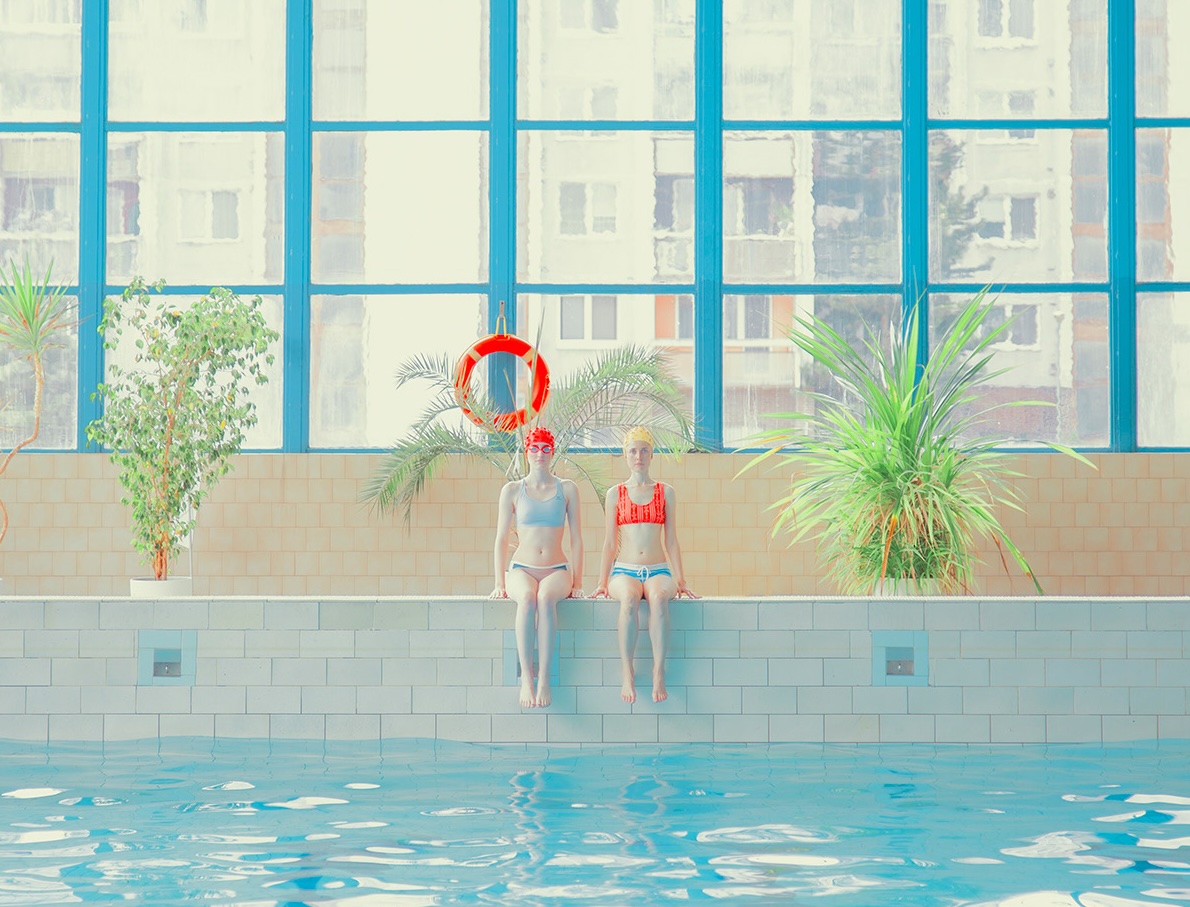
Maria Svarbova
Surface
Exhibition
-> Jun 5 2025 – Aug 23 2025
Svarbova's photography belongs, for the most part, to a very specific context, her native Slovakia. Her childhood was deeply marked by the Soviet, brutalist-style buildings built before the fall of the Berlin Wall. But it wasn't until 2014, when she rediscovered a public high school swimming pool, that she found the timeless potential of these sites. Fascinated by how well preserved the place was despite having been closed for a long time, she decided to portray not only the pools in Slovakia, but also in other parts of the world over the next ten years.
In addition to the use of symmetry, which is a key element in her work, Maria uses in her photographic practice other resources such as tension, rhythm and movement. However, the most important and powerful resource in Svarbova's work is time. In this regard, the artist commented in an interview: "It saddens me to think about time, to see how it doesn't stop. Whenever I go home, I see that my parents have grown old and that terrifies me. Photography is my way of using time, through it I stop it".
Understood in this way, Svarbova's photography is both an effective tool for expressing the plasticity of the water surface in pools, in which “the only thing bathers can do is see their own reflection in the perfect mirror of the pool water,” and the place where time stands still. Maria continues: “Lately I have been using a lot of clocks in my work, clocks mark time, but photography stops it, so time does not move forward anymore”.
In the collection of works that make up Maria Svarbova's debut exhibition in Mexico, Surface, timelessness stands out as the guiding axis of her photographic exercise: the characteristic of that which remains the same throughout the years, that which endures even if the walls of empires collapse and in the midst of which the artistic act, and especially photography, is an act of resistance against the passing of time. Maria Svarbova's work has then the task of fixing in the memory of the spectator and of herself instants that are lost, in order to remain, as happens with the reflections on the surface of the water in any pool around the world, at all times.
–Manuel Tuda